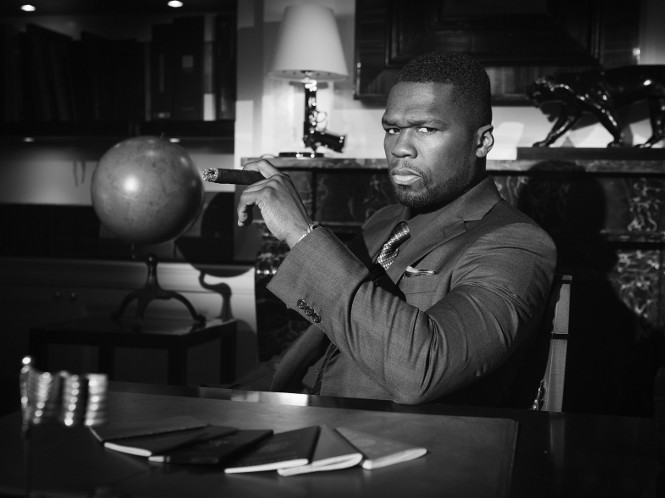Once considered rap’s top villain during the days of promoting his explosive 2003 debut, Get Rich or Die Tryin’, 50, at 47, is now a consummate professional. He’s punctual, debunking the theory that hip-hop stars always arrive on “rapper time.” He’s well-mannered and respectful, saying, “Please,” and “Thank you,” after each request.

He’s also a great listener, allowing the staff to complete their directives during the photo shoot without stiff-arming his way into the conversation. It’s all in keeping with Curtis Jackson III’s drive to achieve a loftier ambition no one could have predicted 20 years ago: to become the biggest mogul in the TV industry.

“50 is one of the smartest guys in the rap game,” says Tony Yayo, 50’s childhood friend and co-founder of their hip-hop group G-Unit. Yayo recalls that, as kids, the South Jamaica, Queens, artist was more interested in selling pills for profit than playing with G.I. Joes. “When you look at guys like Jay-Z, Diddy and 50, those guys are geniuses,” explains Yayo. “They come from the same place we come from and made something out of nothing.”

It’s that same hustler ethos that landed 50 his deal with Interscope Records in 2002, after surviving being shot nine times outside of his grandmother’s house in Queens just two years prior. By signing under two Interscope imprints — Eminem’s Shady Records and Dr. Dre’s Aftermath Entertainment — 50 became the final piece in what would become one of hip-hop’s strongest triumvirates.










